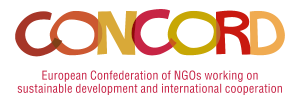On February 6th, CONCORD participated in a workshop in the European Parliament organised by the Budgetary Control Committee CONT on the Study Democratic Accountability and Budgetary Control of NGOs Funded by the EU Budget. This recent study is key for NGOs funded by the EU as it addressed important issues such as transparency and accountability, the functioning of the Financial Transparency System and the Transparency Register. It is a first step for the preparation of an European Parliament’s own initiative report on the Budgetary control of NGO funding by the EU budget. Read the key findings and suggestions on how NGOs should tackle the criticisms mentioned in the report.

THE WORKSHOP:
CONCORD, represented by Seamus Jeffreson, together with Kathrin Schick (VOICE), Thomas Heckeberg (CSE) and Jeremy Wates (European Environmental Bureau), expressed the NGO’s point of view in front of the MEPs and the Commission.
If you want to watch the workshop, please click here.
THE REPORT:
To understand better what is at stakes, we have asked Carlotta Besozzi, from Civil Society Europe (CSE) to answer the following questions.
CONCORD: In what ways is this upcoming report significant for the future work of Civil Society Organisations? And does it pose a possible threat for future NGO funding?
CARLOTTA: This report is important because it comes at a crucial time when plans for the future of the EU funding will be discussed and the financial regulations will be reviewed this year. This future report is an opportunity for the future to make NGOs funding more accessible, transparent and more consistent and to improve audit procedures and limit administrative burden. Unfortunately, the study goes beyond the budgetary control of EU funds to NGOs by covering the influence in EU policy of some organisations and questioning their transparency and accountability.
CONCORD: What does the study say is wrong with the budget control of NGOs?
CARLOTTA: This study is critical towards 2 main points:
1. TRANSPARENCY AND PROCEDURES: The report highlights the lack of accessibility of the financial data published by the EU notably as regards NGOs. This is relevant as the Financial Transparency System is not user-friendly and it is not always consistent with the different programme databases. Nevertheless, the report goes beyond and actually puts into question the ability of the European Commission to ensure adequate control of the procedures in place, but also the respect of financial procedures by NGOs.
One of the conclusions of the report stresses: “The study has encountered very few examples of NGOs that are considered to have been in breach of rules or regulations. A ruling against one NGO mentioned in the report was subsequently overturned by a court in the NGO favour.” This kind of accusation is not supported by any data or evidences and we strongly disagree with this point. It does not contain any specific issues but the language is biased and focused on issues related to transparency, not to budgetary control. And later in this same study “This suggests that, either NGOs are overwhelmingly complying with rules and regulations, or that breaches are going undetected, or not publicly reported when they are detected”. “
2. FREEDOM OF SPEECH IS QUESTIONED: An underlying point of the debate was the potential connection made between the funding and the freedom of expression. Public funding is available to NGOs but this should not be a constraint to their freedom of speech. The EU role is to control the consistency of the funding with criteria but they should not control the activities themselves.

CONCORD: Are these criticisms shared by other EU institutions?
CARLOTTA: At the hearing, the European Commission was positive about their collaboration with NGOS; the speakers were coming from DG BUDGET, DEVCO, ECHO and ENVIRONMENT. The European Court to Auditors mentioned some risks with other beneficiaries, but not with NGOs. Several members of the Parliament were critical of the study.
CONCORD: What should NGOs be doing to answer these criticisms?
CARLOTTA: The study is not very specific on this point, except what concerns the recommendations on the visibility of the financial information. Civil Society organisations should make an effort to make the funding more visible. Concrete example: add where your funding comes from on your website.
CONCORD: Any next steps?
CARLOTTA: A draft report is due to be presented on 22 or 23 March at the Budgetary Control Committee with deadline for amendments the week after and vote end of May in Committee and in July in plenary.
Civil society networks like CONCORD and its members should in my view continue to engage in a dialogue with MEPs from the Budget and from the Budget control committee to explain the added value of NGOS in implementing EU programmes and to address any concerns they may still have about access to funding, transparency and budgetary control procedures.
It is in all our interests that NGOs remain a key actor in implementing EU programmes. Furthermore, programmes for which NGOs are beneficiaries compare favourably in terms of financial control and transparency with other EU funding mechanisms mostly used by other beneficiaries (e.g. structural, research or agriculture programmes) and provide a much needed link to and engagement with the European public.
